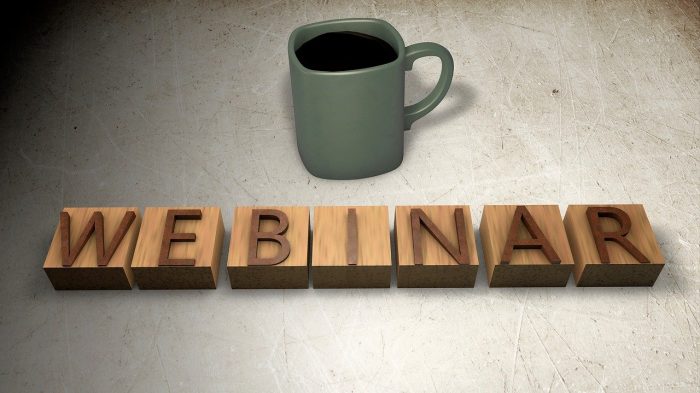Young Autistic Drivers Crash Less than Other Newly Licensed Young People
Ed Department Investigating Special Ed Failures During COVID-19
Guidance for Maintaining Regulatory Compliance in Community Participation Support Facilities during the COVID-19 Pandemic
ODP Announcement 20-016 provides guidance to licensed community participation support (CPS) facilities about maintaining compliance with 55 Pa. Code Chapters 2380 and 2390 during the COVID-19 pandemic.
With the Governor’s authorization as conferred in the Proclamation of Disaster Emergency issued on March 6, 2020 and renewed on June 3, 2020; August 31, 2020; and November 24, 2020, specified provisions in 55 Pa. Code Chapters 2380 and 2390 are suspended until June 30, 2021 or such other time as the Office of Developmental Programs (ODP) directs. A list of suspended regulations and ODP’s guidance for regulatory compliance with Chapters 2380 and 2390 is attached as Appendix A.
In most cases, the suspension is such that full compliance with each regulation is required on or before June 30, 2021 as most CPS facilities are expected to fully reopen prior to that date. However, ODP continues to monitor the COVID-19 pandemic’s impact on service delivery and may extend suspension of the regulatory requirements beyond June 30, 2021 based on changing conditions.
ODP strongly recommends that CPS facilities complete the required activities for individuals at different times between the release of this announcement and the coming months in order to effectively balance their operational workloads. ODP continues to encourage all CPS facilities to use audiovisual technology for required trainings and evaluations whenever possible.
CPS facilities will be notified of any extensions so that they are offered sufficient notice to adjust operations accordingly.
News from the Office of Disability Employment Policy (ODEP)

ODEP Twentieth Anniversary
The Office of Disability Employment Policy (ODEP) is celebrating its twentieth anniversary in 2021. Jennifer Sheehy, Deputy Assistant Secretary of Labor for Disability Employment Policy, posted a blog entitled ODEP at 20: Driving Change and Creating Opportunity. The blog discusses ODEP’s origin and the importance of the evidence-based data that supports its work to promote disability employment. “Data allows us to measure progress made and opportunity to come, and in the case of disability employment, it helps drive change toward a more inclusive workforce – the crux of our mission at ODEP since day one,” said Sheehy. “From evidence-based data to policy to employment supports, we have been driving change and creating opportunity for 20 years.”
Zero Project Awards
The Partnership on Employment and Accessible Technology (PEAT) and the State Exchange on Employment and Disability (SEED) received the 2021 Zero Project Award in the employment category’s innovative policies. This international award is given to organizations for their pioneering practices and policies that support the rights and lives of persons with disabilities. PEAT was honored for its role in fostering collaborations that make emerging technologies, such as artificial intelligence; extended reality; and autonomous vehicles, accessible to people with disabilities. SEED was recognized for promoting state and local policies and practices through cooperative relationships with legislative and administrative bodies, leading to increased employment opportunities for people with disabilities.
MyJAN
The Job Accommodation Network (JAN) launched the MyJAN portal on its website. The MyJAN tool allows website users to save and organize resources in one location, including accommodation solutions by disability, information by topic area, JAN newsletter articles, and more. Users can create a free MyJAN account and add links to JAN webpages, file them by category, include notes about the resources, and set the list and grid view order. Resources can be added, organized, and deleted at any time. In addition to these features, the site displays recommended and newly released JAN resources in a “Recommended Resources” tab in the portal.
- Create a MyJAN account
- Visit the JAN website
Reimagining I/DD Employment Supports Webinar Reminder
Department of Human Services Announces Updates to Employment and Training Programs for TANF Participants
FOR IMMEDIATE RELEASE
January 28, 2021
Harrisburg, PA – Today Department of Human Services (DHS) Secretary Teresa Miller outlined recent changes to the Employment, Advancement, and Retention Network (EARN) and Work Ready programs – two comprehensive employment and training programs that provide support for people who receive Temporary Assistance for Needy Families (TANF) benefits in order to obtain employment skills, prepare for work, and sustain good jobs.
The previous iteration of DHS’s largest employment and training programs prioritized a work-first job placement in any job, regardless of job quality and participant readiness. An analysis of these programs found that, for people who left TANF for employment, about 50 percent returned to TANF within a year.
“Our goal at DHS is to help families reach long-term economic sustainability. We want to be advocates and partners for the people we serve and use TANF both to meet essential needs and empower people to take a step forward for themselves and their family. To accomplish this, we recognized that we need to shift how we serve this population. One immediate way to do so was in the way we operate our employment and training programs,” said DHS Secretary Teresa Miller. “Last year, we launched a redesign of these programs to make sure we were meeting the needs of the people we serve. It is our hope that this redesign will put the people we serve on the path to economic stability and independence.”
Rather than prioritizing a job regardless of job quality and participant readiness, the redesign includes a more thorough assessment that addresses clients holistically to support financial independence. DHS worked with all 22 local workforce development boards and multiple community action agencies and used direct feedback from participants, caseworkers, and providers to shape the new design, which officially launched on July 1, 2020.
Under the redesigned programs, each person will work with a caseworker to identify strengths and barriers in reaching career goals and will receive the support they need to meet those goals. The redesign introduces a focus on education and training activities that will help participants get the skills and certifications they need in the workforce, including GED diplomas or job credentials. Participants will also have access to case managers, individualized coaching, and mental health counseling services. These supports will be available for one year following sustainable employment, meaning that participants will have continued support if issues arise within the first year of employment to help them problem solve and establish stability and independence during this time.
The redesign also supports participants by addressing barriers to employment so that employment can not only be achieved but also maintained. In many instances, participants may be eligible for financial support for materials, supplies, child care, transportation costs, and more in order to successfully participate in employment.
Funding for the redesign comes from an increase in the amount of federal TANF block grant funding allocated to the employment and training programs to support these expanded services. DHS also adjusted the programs’ funding structure to allow providers more flexibility to implement these services and modified incentives for vendors to help get people into job training programs.
DHS will work closely with program providers throughout the year to deliver these new services and to evaluate how these changes impact participants. They will also be monitoring if providers achieve established performance outcomes such as whether a client has achieved long-term employment.
Current participation in the employment and training programs has been shifted to remote services due to COVID-19. In the months since the redesign’s launch, more than 300 people have interacted with a licensed counselor via ongoing counseling, more than 100 participants have been engaged in remediating their barriers to employment, and 112 individuals have met at least one of their personal goals in their individualized employment plan. DHS is continuing to support families by providing skills trainings and mental health service referrals, continuing job-related work activities and services, and implementing options to ensure that participants have adequate devices where possible.
“We want to create programs that give people the space they need to envision a better future for themselves and their families and then provide them with the tools they need to actualize those dreams. This is our opportunity to really try to help change circumstances for parents and families living in incredibly difficult circumstances. No one should have to go at this alone, and we must take a community-wide approach to help people know that they will be supported throughout their journey. We hope that this employment and training redesign will help our clients achieve just that,” said Secretary Miller.
Only families with children are eligible for TANF. Job loss, domestic violence, child care availability, and the need for education are just some of the reasons that someone may need the support of the TANF program. Statistics show that in Pennsylvania, black individuals and families are disproportionately impacted by poverty. This disproportionality is also reflected in the demographics of our public assistance program enrollment – 53 percent of TANF beneficiaries are black. Discussions about TANF must acknowledge the ways that racial inequities and systemic racism impact the populations DHS serves, and we must work to actively dispel the myth that poverty and enrollment in public assistance programs are tied to some kind of moral or personal failure.
Applications for TANF and other public assistance programs can be submitted here. Those who prefer to submit paper documentation can pick up an application at their local County Assistance Office (CAO), where social distancing protocols are in place, They can also print from the website or request an application by phone at 1-800-692-7462. They can then mail it to their local CAO or place it in a CAO’s secure drop box if available. You do not need to know your own eligibility in order to apply. While CAOs remain closed, work processing applications, determining eligibility, and issuing benefits continue. Clients should use COMPASS or the MyCOMPASS PA mobile app to submit necessary updates to their case files while CAOs are closed.
For more information on DHS’s employment and training programs, visit this webpage.
MEDIA CONTACT: Erin James
Office of Developmental Programs (ODP) COVID-19 Update: Vaccination Webinar for All Stakeholders
Governor Wolf 2021 Agenda Prioritizes Economic Recovery, Building on Bipartisan Measures, Government Reform
ODP Update to Temporary Closure of Day Support Programs and Process for Reopening Facilities
Updated Office of Developmental Programs (ODP) Announcement 20-101 provides an update regarding temporary closure guidance for older adult daily living centers, structured day programs, Living Independence for the Elderly (LIFE) day centers, adult training facilities, and vocational facilities related to the community spread of COVID-19. It also provides guidance regarding what to do when an individual or staff member is diagnosed with COVID-19 and has previously spent 15 minutes or more in the facility within a 24-hour period, starting from two days before illness onset (or, for asymptomatic patients, two days prior to test specimen collection) and ending with the time the person is isolated.
Additionally, this announcement describes the process for reopening facilities using the Community Participation Support and Older Adult Facility Reopening Tool. Updates appear in red.
Updates Include:
- Facilities are recommended to remain closed for two consecutive weeks following a substantial community spread level.
- The facility is recommended to be closed for a minimum of 14 days.
- A facility may reopen on the Saturday after the second consecutive week in low or moderate community spread. Providers may elect to remain closed in moderate community level of spread to promote the health and safety of individuals and staff.
- Additionally, the ODP Community Participation Support Reopening Matrix has been updated.















